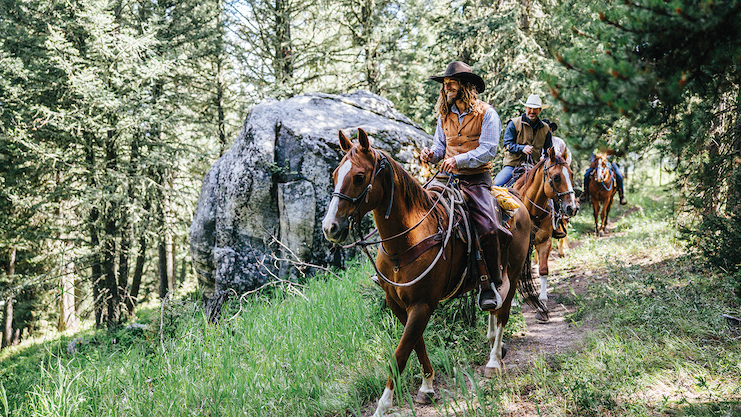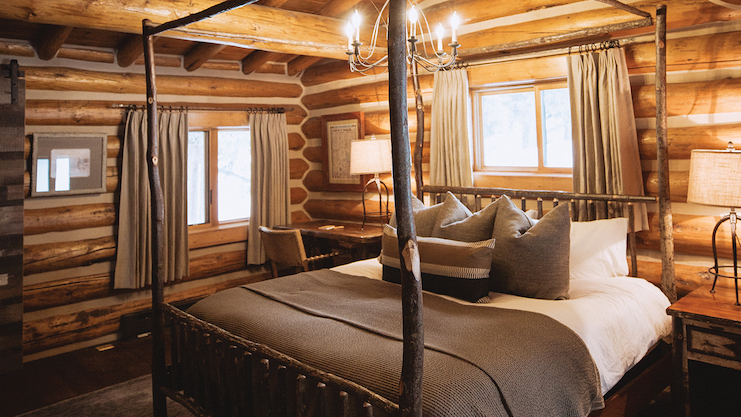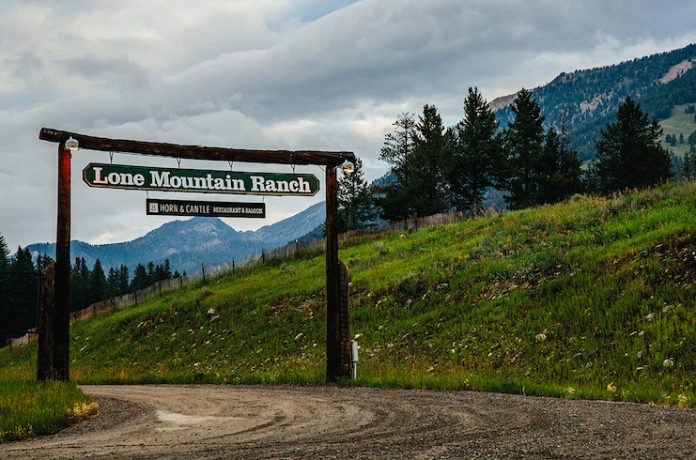Paul Makarechian has visited nearly every continent over the past four decades. Wherever his travels took him, he observed a noticeable difference between resorts abroad compared to those back home in the United States. He noted that here in the states, big-box resorts catering to corporate customers and conferencing are prolific, but another category appears across Europe, South America, and Asia—small, intimate resorts that focus on front-end service. Makarechian called these “petite resorts.”
As the CEO and founder of Auric Road, Makarechian is working on reviving petite resorts in America, breathing new life into old properties surrounded by natural beauty and imbued with rich histories. Auric Road’s current portfolio includes Lone Mountain Ranch in Montana; Rex Ranch in Arizona; and Korakia Pensione, Hotel Joaquin, and Sonoma Coast Villas in California. His goal is to grow that portfolio to 10-15 properties around the Americas and establish Auric Road as a nationally recognizable brand for experiential petite resorts. Each of Auric Road’s small-scale resorts has fewer than 60 keys. They don’t focus on attracting conferences or conventions, nor do they cater to multi-set audiences. Instead, they are tailored to accommodate buyouts or host transient guests—and never at the same time. Makarechian described Auric Road guests as “the curious, the adventurous, the creative, the cultured, the artistic, and the spirited.” He sees them as a rising subset of travelers who are seeking lodging with a more intimate scale, personalized experiences, and to be around other vacationers (as opposed to rowdy wedding guests, professionals suited up for formal meetings, or conference attendees milling about wearing name tags).
At Auric Road, guests choose a room, not a category. Each room’s design and décor is unique, each property embraces the character of its locale, and culinary programs are property-specific. “It’s not just about visiting the resort; it’s about getting a taste of the local culture and vibe,” Makarechian added. So, what makes a property a good fit for Auric Road’s hyper-curated portfolio? Makarechian listed several essential elements, including natural beauty and historic significance. “We seek out any place that has a romantic sense of history and clearly defined natural elements,” he said. “It must be entrenched in the local culture historically; it has to be a part of the local narrative.”
He cited the Florida Keys, the Kentucky Bourbon Trail, and California’s Sonoma Coast, Red Woods, and Palm Springs as a few examples of destinations made famous in some way. In particular, Makarechian said Auric Road aims to be part of a resurgence in time-forgotten places that are growing in popularity. While every Auric Road resort is one-of-a-kind, guests will find they are similar in scale and attention to personal service. What guests won’t find is TVs. Instead, the properties provide other analog media, like records and books. “There’s intentionality behind not having TVs in the rooms and bringing vinyl back,” Makarechian explained. “We want to make people think about what they want to experience, and we want conversations and local culture to be a central component of somebody’s stay along with relaxation.”
Instead of turning on the TV or streaming music as background noise, Makarechian said they want to create “back to sensory” moments for guests, e.g., listening to a record, reading a book, and enjoying the space. “That’s why we put so much personal attention into making every room unique, so every time you come back you can experience it in a different way,” Makarechian added.
This attention to detail and service is central to Auric Road’s development process. “Our first step is always to develop a muse. This begins with deciding who the individual guest is as well as who would be the manager of that property. Do they represent the local culture? Do they have a passion for the region? As we develop, we are also thinking about the essence of the team that’s going to be serving that customer,” Makarechian explained. Once they decide on a muse, “then we build a little oasis around what we imagine their favorite getaway spot would be—the hidden gem that they found.” For instance, they imagined Hotel Joaquin’s muse as a local artist surfer on a staycation—a seasoned traveler who wants to experience Laguna Beach’s local art, hit some waves, and find inspiration. The muse for Lone Mountain Ranch is someone who loves horses and wants to sit by the river listening to the water. “They also have to be up for not having a phone signal for half a day while they are horseback riding—someone who looks forward to that. Someone who likes the sounds and smell of a campfire,” he added. Whether stargazing in Montana or surfing in Laguna Beach, “we want guests to go experience a region, a destination, and a cultural silo through our unique way of delivering a personalized visit,” Makarechian said. “We love to create magic spaces that represent that locale—without TVs!”

















